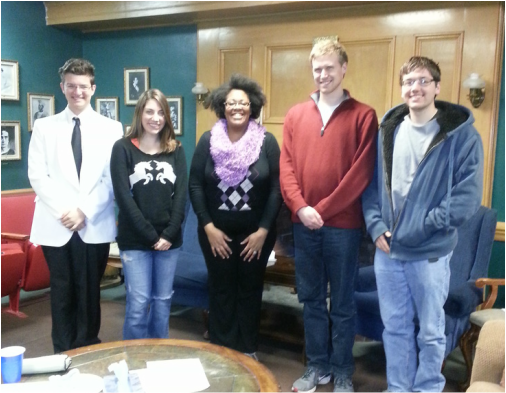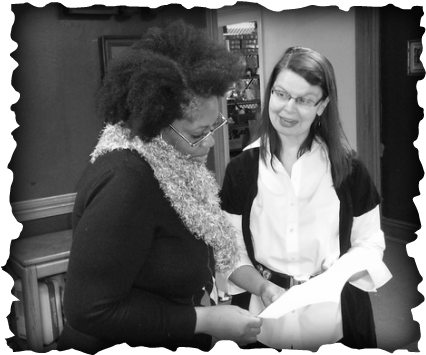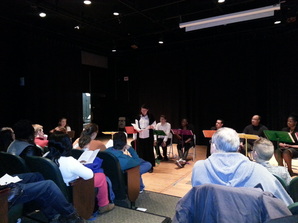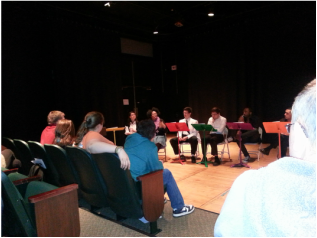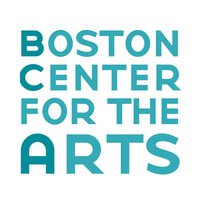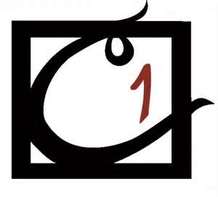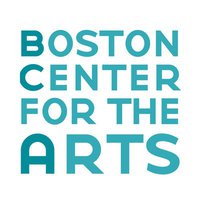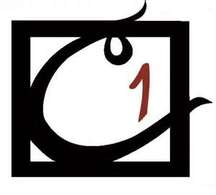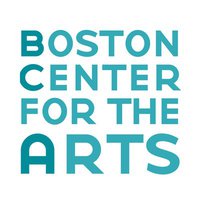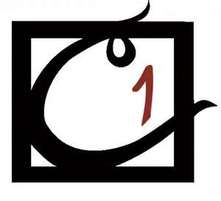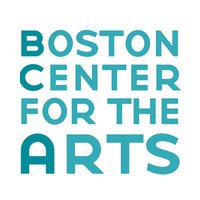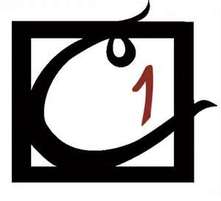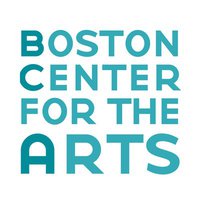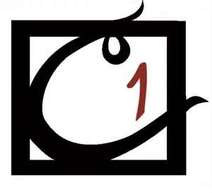 Back in August, I launched the Women Playwrights of D.C. Series. It was encouraging to learn about the experiences, challenges, dreams and ambitions of my colleagues in this community. While much has transpired in our respective lives and careers since our last conversation, it appears that for audiences and threatre artists in the D.C. Theatre community opportunities to experience the work women playwrights and playwrights of color remain few and far between. As season announcements have been rolling out, I've received them with a mix of enthusiasm and disappointed. I'm excited about the plays I'll have an opportunity to experience next season. At the same time, it's frustrating that so few opportunities are available for women and artists of color. What's more, I've received numerous emails from beloved friends and respected colleagues expressing their own anguish and despair over the situation. Honestly, it's hard to stay positive and create in an environment that doesn't seem to value the stories of women and people of color. However, it doesn't serve us to sit mired in misery and disappointment. It just doesn't. We must find ways to commune, heal, encourage, nurture, support, and challenge each other and ourselves. If we do, magic can happen. For instance, director Elissa Goetschius is compiling a nationwide list of women directors. What an amazing and extensive resource. Such positive and productive action is inspiring and necessary. For my part, I've invited the Women Playwright of D.C. to Sound Off in a fun, direct and productive way. I mean, what's the use of being sad, angry, frustrated and disappointed in silence, when you can dance, sing, shout and write about it. As more responses come in, I'll post them. For now, please enjoy these submissions from Bari Biern, Allyson Currin, Kitty Felde, Caleen Sinnette Jennings, Kristen LePine, Liz Maestri, Danielle Mohlman, Kristy Simmons, and Laura Zam. 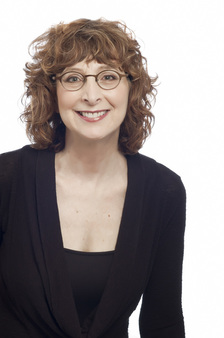 JACQUELINE LAWTON: Would you consider writing under a male pseudonym if it guaranteed you a long, successful and sustainable career (ie. awards, critical acclaim and regular productions of your work at local, regional, and national theatres)? The hitch, you could only reveal your identity posthumously. Why or why not? Bari Biern: This one’s a no-brainer. Please feel free to bill me as Barry Biern. JL: Next, how do you define success? How has this definition evolved over the years? BB: Success is seeing my script or libretto realized onstage exactly—or better than-- the way I envisioned it while I was writing. In the beginning, I imagined success would be getting a company to actually produce one of my scripts. Since then, I’ve witnessed, through the experiences of my fellow playwrights, that, if it’s not the right company, a production can actually break your heart. JL: As a playwright, what do you need from your community of:
JL: Pick a local, regional or national theatre company, study its mission and a pitch play directly to them: BB: Okay, Washington Stage Guild. Here’s the elevator pitch, even though you don’t have an elevator. You produce “eloquent plays of idea and argument, passion and wit…enacted by a classical ensemble.” You also present excellent adaptations of classic literature, including this season’s offering, Dante’s Inferno. My adaptation of E.F. Benson’s Mapp & Lucia has all the elements you seek—idea, argument, passion and wit, plus it’s written by a local woman playwright. Who could ask for anything more? If your main concern is the number of characters, Bill Largess can play all the parts! JL. What's next for you as a playwright? Where can we follow your work? BB: This June, the In Series will present the DC premiere of Puccini’s Gianni Schicchi, featuring my English libretto, which sets the opera in South Philadelphia in the 1970s (yes, cheese steaks are involved). The Round House Theatre’s HeyDay Players will present my ten-minute play, The Old and the Zestless. This wonderful title was suggested by the actors. I love it. I just completed the English script and lyrics for The Key, and original family musical by Hungarian composer, Tibor Zonai. We’re currently looking for producers. Next up…I’m writing an English libretto for the fall 2013 In Series production of Mozart’s The Abduction From the Seraglio, directed by the wonderful Tom Mallan. You can follow my adventures at my website, www.baribiern.com. 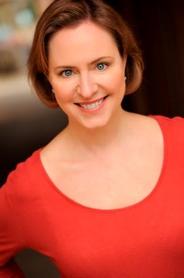 JACQUELINE LAWTON: Would you consider writing under a male pseudonym if it guaranteed you a long, successful and sustainable career (ie. awards, critical acclaim and regular productions of your work at local, regional, and national theatres)? The hitch, you could only reveal your identity posthumously. Why or why not? ALLYSON CURRIN: Oh, I hate this question. I hate it because I can’t pretend to be high-minded and noble when I answer it. I would probably totally do that with all those career certainties in place. Dammit. But here’s the flip side: I have always been extremely proud of my work, and proud that it shows up under my name. I have been tempted before to write under a male pseudonym, and know women artists who do. But in the final analysis, I am too proud of my work. I want my name on it. So, that’s a dream world/real world response. Do with it what you will…sigh… JL: Next, how do you define success? How has this definition evolved over the years? AC: Being a performer has diminished in importance for me, mostly because my playwriting took off in the way that it did. Playwriting was ultimately more gratifying and artistically fulfilling. I have also come to place far less importance on working within “the system.” It feels so good to seize the reins, buck the trends and produce your work yourself. I also think I am more generous and less competitive with my fellow playwrights, and I am better at embracing my theatre community, singing its praises. But most compellingly, I define my success increasingly by the growth of my own expression and creativity. When I started out, I was definitely more content to coast along with what I knew was a sure thing, with what was glib and funny. That was enough then. It isn’t CLOSE to enough now, and I think my writing has really deepened and grown because of that. I think I’m a better playwright now. JL: As a playwright, what do you need from your community of:
JL: Pick a local, regional or national theatre company, study it's mission and a pitch play directly to them: AC: Kitchen Dog Theatre! Let’s partner up on my new play CAESAR AND DADA – a dark backstage comedy about a production of JULIUS CAESAR in post-World War I Zurich. The days of Dada are upon them and Dada’s punk rock anarchy starts to infect their production, their dreams, and ultimately their lives. It’s a play about a world blown apart! About tables without legs! “The Huns are coming – disassemble the LOOM!!!!” Come on, Kitchen Dog, you guys like to jack things up – let’s play! JL: What's next for you as a playwright? Where can we follow your work? AC: I have a lot coming up fortunately!
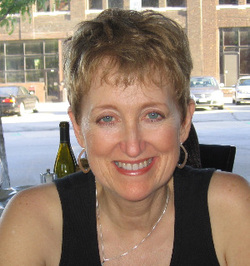 JACQUELINE LAWTON: Would you consider writing under a male pseudonym if it guaranteed you a long, successful and sustainable career (ie. awards, critical acclaim and regular productions of your work at local, regional, and national theatres)? The hitch, you could only reveal your identity posthumously. Why or why not? Kitty Felde: Nope. I've been Kitty Felde since I was born. If my stuff isn't good enough, it isn't good enough. Changing my name to Ralph isn't going to help. JL: Next, how do you define success? How has this definition evolved over the years? KF: Seeing my work on a large regional stage would be considered a real success for me. I've written for television, acted in a Woody Allen film, got to interview Colin Firth. Those are successes of another kind. But even though my work is performed around the world, I don't think I'll see myself as a "successful playwright" until the Taper or Arena or some other legacy regional theatre picks up a piece of mine. JL: As a playwright, what do you need from your theatre community: KF: Actors are gold. They are generous with their time and talent, hungry to take on a new play. Bless them all. Directors are like your wise older sister, seeing things in your work and challenging you to defend your stuff. Designers have a gift I wish I had: making words into three dimensional spaces. Playwrights "get it" - they understand the need to sit for long hours at the keyboards for little encouragement and no money. They don't think I'm crazy. Artistic Directors are my cheerleading squad. Even when they don't tackle one of my plays, the fact that they read it or come to a reading or send an encouraging email makes me feel as though I'm part of this larger theatrical community. Audience members keep me honest. If it doesn't work, they let you know with every squeak of their chair, rustle in a purse, even a yawn. And bless them, they laugh to let me know when I get it right. Theatre Critics are the smartest kid in the classroom - even when they're not. The key is to know in your heart when they're right - and when they're not. JL: Pick a local, regional or national theatre company, study it's mission and a pitch play directly to them: KF: done JL: What's next for you as a playwright? Where can we follow your work? KF: My angry response to "Clyburn Park" - a ten minute piece about how desegregation REALLY happened in the 1960's called THE FLIER - gets a reading in LA next month. You can keep up with me at www.kittyfelde.com. 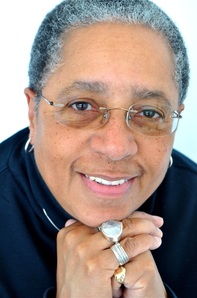 JACQUELINE LAWTON: Would you consider writing under a male pseudonym if it guaranteed you a long, successful and sustainable career (ie. awards, critical acclaim and regular productions of your work at local, regional, and national theatres)? The hitch, you could only reveal your identity posthumously. Why or why not? CALEEN SINETTE JENNINGS: Sure. It would be so much fun and it would prove a point, even if I wouldn't be around to enjoy it. I don't need the public recognition and acclaim. I don't need people to know that a woman wrote it. The buzz would be seeing my work on stage, hopefully getting people to think and engage with ideas. And the money would be nice, of course. JL: Next, how do you define success? How has this definition evolved over the years? CSJ: I define success as being alive and healthy, loving and being loved, learning, taking risks, having time to smell the flowers, doing a meaningful service for someone else. When I can do this through my plays or through teaching, it's more than success, it's nirvana. The day I let go of self-imposed deadlines regarding recognition, awards, or number of productions and embraced success in terms of what I listed above, was the day I felt my writing become freer. Now I can genuinely celebrate someone else's success (without having that secret pang of regret or depression about my perceived lack of progress). I'm successful because students I've taught are working and happy, because actors and directors in this town ask me, "you working on something?", because I'm living in D.C. where I get asked questions by Jacqueline Lawton, and I get to read the inspirational answers of my sister playwrights. Feels like success to me! JL: As a playwright, what do you need from your community of:
JL: Pick a local, regional or national theatre company, study it's mission and a pitch play directly to them: CSJ: TBA! JL: What's next for you as a playwright? Where can we follow your work? CSJ: I'm in progress on a radio play, another ten minute play, a children's play, and a full length play for a college. Send me an e-mail or call me. I don't yet have a website (although I should), I don't post on Facebook and I don't tweet. Thank God for my husband and my friends who are slowly but surely dragging me into the 21st Century. 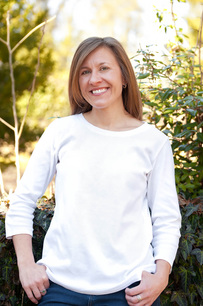 JACQUELINE LAWTON: Would you consider writing under a male pseudonym if it guaranteed you a long, successful and sustainable career (ie. awards, critical acclaim and regular productions of your work at local, regional, and national theatres)? The hitch, you could only reveal your identity posthumously. Why or why not? KRISTEN LEPINE: The use of a “nom de plume” has a lengthy literary history especially for women writers wishing to disguise their gender often at the behest of publishers who believed it would increase male readership. And although I can think off the top of my head of many women who wrote/still write under male or gender neutral pseudonyms (George Sand, The Bronte sisters, Louisa Mae Alcott, DC Fontana, JK Rowling.), men have used female pseudonym too (Jane Martin and – okay, I can only think of Jane Martin, but surely there are more.) I have mixed feelings about writing under a pen name (Who cares about the gender of the writer? What matters is quality! Aren’t we beyond this? Would a woman really be more successful writing under a pseudonym than her own name? Oh wait, just how many female writers were produced in US theatres in the 2012-2013 season? Still, isn’t using a pen name to disguise gender only contributing to the problem? I fear I am over thinking this. Argh!). At the end of the day, I want to write plays, plays that matter, plays that do not sit on my hard drive, plays that are produced. If having a different name helps, then it is worth consideration. JL: Next, how do you define success? How has this definition evolved over the years? KL: For me, success is the ability to actively pursue what I love to do, what makes me happy, at my own pace. I don’t think my definition has changed, but I what has changed is that I am more secure with my definition. JL: As a playwright, what do you need from your theatre community: KL: I am grateful for the relationships I have built in the theatre community. It is because of these partnerships with supportive actors, directors, playwrights, artistic directors, and audience members that I have been able to continue to pursue my passion for playwriting. What do I need? Continued support :~) JL: Pick a local, regional or national theatre company, study its mission and a pitch play directly to them: KL: This was my New Year’s Resolution: to be more proactive in marketing my scripts. This is admittedly my weakness. I have been more proactive. Thank you for inspiring me further! JL: What's next for you as a playwright? Where can we follow your work? KL: Currently, I am working on a major rewrite of my Greek inspired saga about working mothers titled Leto Legend. I am also in the midst of a new marketing campaign, so perhaps in a couple of months, I will have more news to share with you. Please visit me at kristenlepine.com. 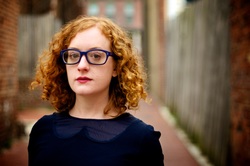 JACQUELINE LAWTON: Would you consider writing under a male pseudonym if it guaranteed you a long, successful and sustainable career (ie. awards, critical acclaim and regular productions of your work at local, regional, and national theatres)? The hitch, you could only reveal your identity posthumously. Why or why not? LIZ MAESTRI: I actually considered doing this when I started playwriting, but quickly decided against it. It would feel deceptive, and I don’t like the idea of not being able to take credit for, promote, or openly talk about my work. (This would also mean having to stay off social media entirely. Hermitage!) My work is my work, and if I had to lie to be recognized or fit into someone’s bullsh** idea of what it means to be a professional writer, well then I guess I’ll be DIYing it for the rest of time. It’s sad that we even have to ask this question in 2013, and even sadder that an industry that fancies itself progressive has a problem with women. That said, I sometimes wish I had an androgynous first name, or used initials or something, because this is what we’re dealing with. All of my leading characters are women, and I know that these characters and their stories would be taken more seriously if it appeared that a man wrote them. Because it’s 1847. JL: Next, how do you define success? How has this definition evolved over the years? LM: This is tough. I continue to fight against my more superficial concepts of success, such as validation and recognition, because they place control of my own pride into the hands of others. This fight is hard to do in an industry that’s so heavily based on awards and contests, but for me, focusing on recognition is an unhealthy and joyless place. I hope to put these feelings to rest. Here is my real, prizelust-free vision of success: Success means having the opportunity to make good work year-round with people I respect, and being able to see clear improvements in my writing as time goes by. JL: As a playwright, what do you need from your community of:
JL: Pick a local, regional or national theatre company, study its mission and a pitch play directly to them: LM: This pitch is for Jenny and Randy at Rorschach Theatre in DC. Their mission is in spot-on harmony with the kind of work I do, and I love that they aren’t afraid of out-there scripts and locations. The piece I’d ask Rorschach to consider is called In the Dark of the Sun, a Western about three tough women traveling through the American frontier. The women, Dame, Dean, and Edna, are missionaries for the leader of a strange religion back east. They set up camp on a trail from river to plains to the Rockies, and are fiercely committed to their quest--so much so that heaven help the man or woman who doesn’t heed their word. The women wreak havoc along the way, but when Dean has a run-in with a lone-wolf cowboy and a grieving American Indian that leaves one of her comrades dead, she struggles to decide where her loyalties lie and what her future holds on the other side of the mountains. This play would also help bridge DC’s theater and music scenes; I’m interested in working with a local musician and songwriter (ex-Northern Liberties, Ruffian Records) on a potentially live score. JL: What's next for you as a playwright? Where can we follow your work? LM: In May, a reading of my new play House Beautiful at the Locally Grown Festival and a run of Condo Condo Condoland at the unstoppable EMP Collective in Baltimore. In July, DC’s Field Trip Theatre is doing a run of my play Fallbeil at Capital Fringe. You can also check in at www.lizmaestri.com to see what’s going on, and follow me on Twitter (@lizmaestri) if you are so inclined. 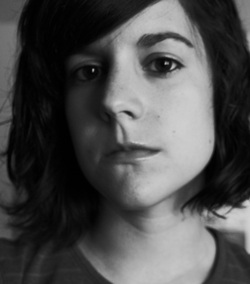 JACQUELINE LAWTON: Would you consider writing under a male pseudonym if it guaranteed you a long, successful and sustainable career (ie. awards, critical acclaim and regular productions of your work at local, regional, and national theatres)? The hitch, you could only reveal your identity posthumously. Why or why not? DANIELLE MOHLMAN: Never. I'm not ashamed of being a woman. JL: Next, how do you define success? How has this definition evolved over the years? DM: I measure my own success by the creative work I'm doing. As long as I'm writing, developing, or working on a production of my plays, I know I'm doing something right. It's wonderful to be validated by a theatre and the recognition that comes from all that is incredibly flattering, but if I let others define my success, I would never be able to get out of my head. JL: As a playwright, what do you need from your theatre community: DM: I have been incredibly happy with all the smart and talented actors, directors, designers, and playwrights I've worked with here in DC. The audiences who've seen my work have been incredibly receptive and the critics have asked thought-provoking questions. However, I want the artistic directors here to be fearless. I'm sick and tired of seeing theatre companies importing talent from New York. If DC truly wants to live up to its status as the second-largest theatre town in the US, this town needs to embrace the diverse voices and talent here. JL: Pick a local, regional or national theatre company, study its mission and a pitch play directly to them: DM: Let's go with Woolly Mammoth, since I have a massive theatre crush on them. Dust is a reverse-gender Vietnam-era adaptation of J.M. Barrie's Peter Pan. This piece has one foot firmly rooted in reality and another buried in the fantastic -- teetering between an untouched tribe of misfit women and the reality of the Vietnam War. JL: What's next for you as a playwright? Where can we follow your work? DM: An open movement workshop of Dust with Artists' Bloc on May 26 at the Forum space at Sidney Harman Hall and a staged reading of Nexus with Field Trip Theatre at The Wonderland Ballroom on June 9. And a couple more things I can't announce just yet. (I've always wanted to say something like that.) 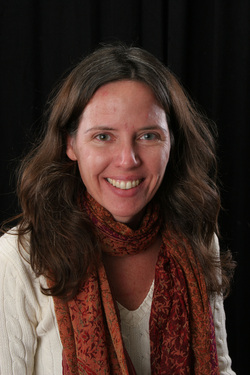 JAQUELINE LAWTON: Would you consider writing in a male pseudonym if it guaranteed you a long, successful and sustainable career (i.e. awards, critical acclaim and regular productions of your work at local, regional, and national theatres)? The hitch, you could only reveal your identity posthumously. Why or why not? KRISTY SIMMONS: While I think it would be fun to dress in men’s clothing and have an inner wink going all the time at my male-won success, the drudgery of having to live this double life would be less comfortable than donning a pair of high heels. I’d prefer to be obscure and valued by my friends and colleagues. The joy I feel in my writing is as valuable as gold compared to the daily removal of men’s clothing and identity. JL: Next, how do you define success? How has this definition evolved over the years? KS: I define success as writing the plays I want to write, having them be valued as moving and thought-provoking, and earning a livable income from it. At first my definition of success was talent in overcoming the challenges set in my work, gaining awards and having productions. The only difference in its evolution is that now I expect to get paid for all my effort and years of work. JL: As a playwright, what do you need from your community of:
JL: Pick a local, regional or national theatre company, study its mission and pitch a play directly to them. KS: I’d like to pitch a play to Theater J. As a fan of their productions I think the following theme would be something they might get excited about. I have a play outline in the works about a female screenwriter who was raised in a secular Jewish family. She receives a specialized grant to mentor an African-American student on a screenplay collaboration. This young writer’s passion for his African-American history, his identity and his trying to understand her lackadaisical attitude about her Jewish ancestry awakens her Judaism. As the plot evolves a convergence of three different worlds collide –that of their daily life, that of the history of blacks and Jews, and then the imagined characters in their story. These ultimately converge on many levels, providing a surreal world for the investigation of Jewish identity in our modern world. JL: What’s next for you as a playwright? Where can we follow your work? KS: Right now I’m writing a play that’s a video-performance piece for a gallery called Doris-Mae. It follows three couples and two characters will be recorded and projected on a video screen behind four live actors. They will respond and talk to each other. The play is about the patterns we have in relationships, at the particular point where one person wants to see a specific change in the relationship. It explores how people try to change one another’s behavior. It will be performed in the gallery in June. You can follow my work on www.kristysimmonsart.com or friend me on Facebook to get updates.  JACQUELINE LAWTON: Would you consider writing under a male pseudonym if it guaranteed you a long, successful and sustainable career (ie. awards, critical acclaim and regular productions of your work at local, regional, and national theatres)? The hitch, you could only reveal your identity posthumously. Why or why not? LAURA ZAM: I can't imagine writing under a different name. I write a lot of autobiographical pieces, so this is not really an option for me. But aside from that, if the theater were not interested in my work, I would just work in another medium. I'd just keep going until I found an audience for my my art and for me as an artist -- just as I am! JL: Next, how do you define success? How has this definition evolved over the years? LZ: For the past few years I've been really interested in art and entrepreneurship. However, I never studied business formally until two months ago when I enrolled in a business course at the DC Women's Business Center. It was amazing. The class just finished last night, so I will answer your question still wearing my (well-earned -- that class was hard!) entrepreneur's hat. Success for me is profit. I know that's a naughty word in art spheres. But I see it like this: since I don't run a non-profit organization, my art activities -- by business -- is a for-profit enterprise. Therefore, the health--and sustainability--of this enterprise depend on my ability to cover my expenses, pay myself a salary, and have something left over to reinvest in my career. Since I don't have a day job, there's no other way for me to live as an artist. Therefore, success, for me, is profit. But this is just a more specific way of saying that success is truly making a living doing what I love. JL: As a playwright, what do you need from your community of:
JL: Pick a local, regional or national theatre company, study it's mission and a pitch play directly to them: LZ: Great idea. I'll do that. JL: What's next for you as a playwright? Where can we follow your work? LZ: Right now I'm working on a memoir that's based on my play MARRIED SEX. I'm also investigating ways of bringing my MARRIED SEX play to New York for a production, which I see extending into a national tour. Eventually I see the memoir and the play reinforcing each other, along with video content I'll be creating for this project (including interviews, performance footage, documentary footage, and monologues performed in character). My vision is to these elements work together with some synergy. I also intend to donate a portion of proceeds to organizations providing sex education.
0 Comments
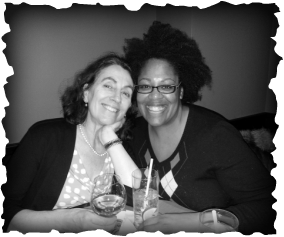 Photo by Rick Massimo. Last Wednesday, March 20th and Thursday, March 21st, I was at Gettysburg College participating in their Theatre Arts program's inaugural New Play Festival. Dr. Susan Russell directed and starred in a mostly student reading of my play, Our Man Beverly Snow. (One cast member was a local reverend and Susan read as Constable Jeffers!) Professor Kathryn Kawecki directed a student reading of Christine Evans' play, Weightless. Our respective readings and post show discussions were quite successful and wonderfully productive. We had an enthusiastic and attentive audience of theater students and students who were friends of the casts. My cast included Joseph Donnella as Beverly Snow, Carl Jones as Reverend Frank Cook, Wes Jackson as Arthur Bowen, Maria Lawson as Maria Bowen, Kay-Chelle M. Waterton as Julia Snow, Angelo D'Amato as Andrew Laub, Brendan Morgan as Reuben Crandall, Susan Russell as Constable Jeffers and Audrey Bowler as Stage Directions. While I won't be able to work on rewrites of Our Man Beverly Snow until after The Hampton Years has opened at Theater J, I'm excited to integrate all that I learned in development with these sharp, talented and generous folks at Gettysburg. Mainly, I'm letting go of the one location set, which will open up the world of the play in a useful, active and more compelling way. As a playwright, I had been interested in exploring the one location set, but it doesn't work for this play. After all, this is a revolution. There are several key participants and significant locations. This play is also begging for a darker, more lyrical tone and two more characters. 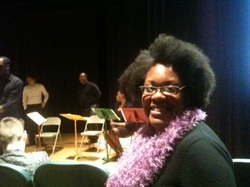 Photo by Christine Evans. In addition to the reading, I lead a playwriting workshop with a handful of students and that wasy just wonderful. It was great to get to know them and where they were in both their academic and artistic journeys. It was also greats speaking with them about life as a playwright. Overall, my time at Gettysburg was inspiring and rejuvenating. However, it was all too short! It was wonderful to be in an academic environment clearly supported by the larger institution. I hope to come back when I have more time not only to work with the students and faculty, but also to explore this amazing, historic city. I managed to take some photos of our time together and am happy to share them with you now. Our Man Beverly Snow RehearsalPlaywrights' WorkshopDirector and Playwright Discuss Casting ChangesOur Man Beverly Snow Green Room GatheringOur Man Beverly Snow Reading and Post Show Discussion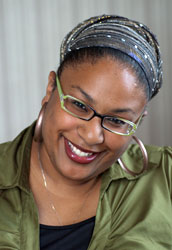 JACQUELINE LAWTON: Why did you decide to get into theatre? Was there someone or a particular show that inspired you? HANA SHARIF: One of my earliest theatrical memories was seeing Porgy & Bess at the outdoor theatre with my parents. I was maybe six years old. I still have such clear memories of the costumes, the music, and feeling of sitting on the blanket with a picnic basket and feeling joy. There are many defining productions in my childhood and youth that inspired me A Soldier's Story, Long Days Journey Into Night, Funnyhouse of a Negro, Noise / Funk to name a few. But ultimately, I fell hopelessly in love with beautiful intimacy and infinite possibility found when rich stories, fearless artists, and a willing audience collide. JL: Where do you feel we are in terms of gender and race in larger landscape of the American Theatre? HS: It depends on how you contextualize it. The American Theatre has never been more diverse in terms of the balance of art and artists being produced. That being said, the balance of power is far from equitable. It would not be unreasonable to look at a snapshot of the field and take away the idea that it is a very monolithic community. I think the larger question is how do we dynamically shift the way we think about the art we produce in a way that opens the door to a larger range of artists. JL: How do you feel your community has addressed the issues of race and gender parity? How has this particular issue impacted you and your ability to practice your craft? HS: I am new to Boston, but I have been impressed by the number of female directors, producers, theatre service organization leaders and multifaceted artists that are at the forefront of the Boston Theatre Scene. I am fortunate to have a range of mentors, advocates and angels that have taken great leaps of faith in support of my craft. Most of my career has been spent walking into rooms where I am the "only" - Only African American, or female, or both in the room. I realized early on how important it is to have a support system and reached out to others around the country that are sharing the experience of trying to produce, direct, or write in room where no one else looks like you. Some of my most valuable collaborators, mentors, and friendships have been found by reaching out a hand to say "I am here and this is my experience. How has it been for you?" JL: Why is it important that we continue to have these conversations that address gender and race in theatre? HS: There is no future without progress, no progress without change, no change without discourse. The theatre is an inherently transformative space. Every time we challenge ourselves to further clarify and define the challenges of racial and gender disparity, we become the architects of world large enough to hold all of our stories. JL: What excites you about taking part in the XX Playlab Festival? HS: I am exciting by the level of discourse XX Playlab team is committed to nurturing and the incredibly talented playwrights featured this year!
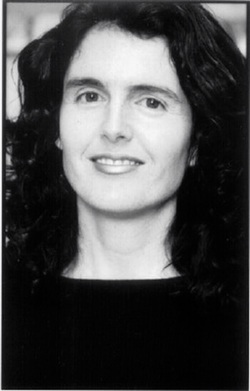 JACQUELINE LAWTON: Why did you decide to get into theatre? Was there someone or a particular show that inspired you? ANNE GARCIA-ROMERO: My Spanish father’s immediate family members were all performers. My grandparents were singers in Compañia Santa Cruz, a zarzuela troupe (Spanish light opera) that toured throughout Latin America, Central America and Cuba in the early decades of the twentieth century. The troupe included the mother of Plácido Domingo. My eldest aunt, Ana María Olaria, was a renowned zarzuela and opera singer in Spain in the 1950’s and 60’s and my uncle, Tito Mora, was a successful popular singer in Spain in the 1960’s and 1970’s. While I grew up in the Boston area, my Spanish family would visit us and we’d also spend time with them in Madrid. I was very taken by their theatrical lives. Also significantly, my American mother was a professor of Spanish literature at Pine Manor College in Brookline, MA and for the first seven years of my life, we lived on campus. From a very young age, I began accompanying my parents to the musical theater productions in the college’s impressive performing arts center. Even after we moved to nearby Wellesley, MA, I continued to see the shows at Pine Manor every year and was completely enthralled. Once, when my abuela (grandmother in Spanish) was visiting us from Madrid, we attended a musical together. Afterward, she proclaimed, “A Ani le encanta el teatro mas que nadie en nuestra familia." (Annie loves the theater more than anyone in our family.) I’ll also never forget sitting in the balcony of a Boston theater seeing Richard Kiley starring in the national tour of Man of La Mancha. I’d seen the TV ads about the show and begged my parents to take me. One of my childhood friends asked me, “Why would you want to see that?” and in my emphatic eleven year old voice, I exclaimed, “It’s my heritage!” I continue to explore and honor my heritage, my culture and my family in the plays that I write. JL: Where do you feel we are in terms of gender and race in larger landscape of the American Theatre? AGR: I feel we need to continue to address the complexities of gender and race in the American Theatre. Our 21st century society is ever more culturally diverse. The American Theatre needs to continue to embrace the multivaried ways in which race and gender present themselves in our contemporary age. Specifically, I'm currently part of a new initiative, Latino Theater Commons, a national advocacy group, that aims to connect Latino/a theater artists across the country and raise awareness of contemporary Latino/a theater in this country. In describing our aims, we focus on the need to update the U.S. narrative in American Theatre. I wrote a short article about Latino Theater Commons for Howlround.com. I share an excerpt here as I feel it also very much applies to the conversation of race and gender: “Theater can function as a reflection of our contemporary national narrative. The character journeys on a stage often help us better understand the complexities of our society. US culture in the twenty-first century continues to move from a mono-cultural to a multi-cultural experience. However, US theater currently does not always reflect this reality and therefore can perpetuate an outdated narrative. Contemporary Latino/a theater updates the US narrative through presenting diverse cultural worlds that allow theater audiences to more fully understand the US experience in the twenty-first century.” * JL: How do you feel your community has addressed the issues of race and gender parity? How has this particular issue impacted you and your ability to practice your craft? AGR: One way I feel this issue has impacted me and my craft is that, in addition to being a playwright, I'm also a theater studies scholar and have spent the last several years writing a book, Contemporary Latina Theater: Transcultural Voices, which explores the work of five award winning Latina playwrights: Cusi Cram, Quiara Alegría Hudes, Elaine Romero, Caridad Svich and Karen Zacarías and how they address culture, identity, spirituality and theatrical experimentation in their work. I felt compelled to research and write this book as these vibrant women exemplify the transcultural complexity of the twenty-first century Latina community and their work, on the whole, has not been included in Theater Studies scholarship. JL: Why is it important that we continue to have these conversations that address gender and race in theatre? AGR: I feel it is important that we continue these conversations as they raise awareness regarding these essential issues of race and gender. We need to consistently engage in a dialogue in which we share our experience, expertise and craft, and thus broaden the knowledge base about the remarkable work being generated by women of color in the American Theater. JL: What excites you about taking part in the XX Playlab Festival? AGR: I'm excited and encouraged to take part in a festival that celebrates women and diverse voices. I grew up near Boston and those formative years hugely influenced my path in the theater. Now, I'm currently based in the Chicago area so I feel honored to return to Boston to be part of this compelling conversation.
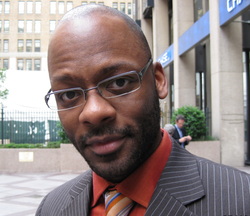 JACQUELINE LAWTON: Why did you decide to get into theatre? Was there someone or a particular show that inspired you? OTIS CORTEZ RAMSEY-ZOE: I wish that this were a more thrilling story. I wish that I could say (as I sometimes do say when I’m in a revisionist mood) that I had encountered the work of Federico Garcia Lorca, Bertolt Brecht, or Tennessee Williams, and that one or all three led me to the theatre. The honest, boring story is that I did a Christmas play when I was in the second grade. I forget the play, but in the story on Christmas Eve all of the toys come to life. I played a duck, and to this day I remember my big line. I’ll spare you the setup and go directly for the punch. The toy soldier says, “Halt, who goes there?” And I respond, “Quack! Quack! You scared the feathers off my back!” Years later as a first-year student at the University of Notre Dame, I glided into the theatre department office and declared my intent to major in theatre. At that point, I had never taken a single drama class. There’s one other story pertaining to the meaning of my name, but I save that one for face-to-face encounters. JL: Where do you feel we are in terms of gender and race in larger landscape of the American Theatre? OCRZ: I think that American theatre is a reflection of American society, values, and ideas. Theatre is not created, produced nor presented in a vacuum, and since theatre is representational it reproduces society’s glories as well as shortcomings and failures. We are where we are, although it is not where we are supposed to be. It is our job to push inside and outside of the theater space and to make theatre that pushes people’s buttons and inspires thoughtful interrogation and change. I include change of hearts and minds in my call. JL: How do you feel your community has addressed the issues of race and gender parity? How has this particular issue impacted you and your ability to practice your craft? OCRZ: This question is slippery—I can’t pin it down like a butterfly. The first trap that catches me is the demarcation “your community.” I don’t mean trap pejoratively; I’m thinking specifically about an enclosure, but I welcome the myriad evocations. In America, we do this thing where we make neat enclosures or categories. We break things apart, and we say “your community” and “their issue” and “how do they solve it.” I am the only member of “my community.” Miles Davis once said, “If you understood everything I said, you’d be me.” Moreover, because I don’t function in one single community, I am also communities. We have to consider that a community is simultaneously:
(Disclaimer: These three short definitions occurred to me instantly, but I am certain that there are other ways of thinking about the term.) I feel a need to continue to interview the term community in addition to the concept of boundaries. As such, I don’t have an answer, but I plan to continue to wrestle with the question. In terms of impact on my ability to practice my craft, hundreds of answers fill my mind. The truest response for me is that it doesn’t. I am able to practice my craft because I am the governor of actions. America’s race and gender issues do not define me (for me) even if they provide a frame for other’s interactions with me. Similarly, the theater’s issues have an impact on opportunities, which are external, and when I say that it doesn’t impact me, I’m referring to internal and personal choices. Of course, this is only a partial response to a complex question. JL: Why is it important that we continue to have these conversations that address gender and race in theatre? OCRZ: I believe that the conversations are essential insofar as they inspire action and provide information that helps people to see what action steps should be taken. Action is what gives these conversations meaning. Without action perhaps we are just a collection of people making word music, in which case we needn’t structure our sentences in complete thoughts since it would be wholly sufficient to arrange words according to sound to create sound scores. JL: What excites you about taking part in the XX Playlab Festival? OCRZ: I am most excited about the lineup of artists, hands down!! Company One and BCA have assembled a remarkable collection of minds. I anticipate being enriched by the fellowship with the artist-scholars. I live to listen; in fact, it’s how I found my career. I am excited about listening to everyone.
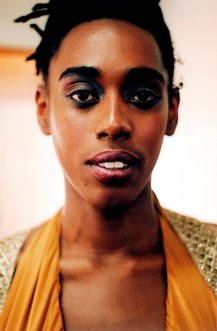 JACQUELINE LAWTON: Why did you decide to get into theatre? Was there someone or a particular show that inspired you? LENELLE MOISE: I was an immigrant daughter from a religious and over-protective household. I wasn’t allowed to play outdoors. I became a very bookish and serious child. Studying and creating theatre gave me much-needed opportunities to play. In rehearsal studios, black boxes and larger theaters, I learned social skills and confidence. My working class parents couldn’t afford athletic gear or musical instruments. Pencils, paper and imagination are affordable. JL: Where do you feel we are in terms of gender and race in larger landscape of the American Theatre? LM: I find that American audiences are eager—or, at least, curious—to see women and people of color in complex, leading roles. Producers and presenters are starting to catch up. JL: How do you feel your community has addressed the issues of race and gender parity? How has this particular issue impacted you and your ability to practice your craft? LM: I feel very empowered and encouraged as a performance poet and solo theatre artist to create work that is both artistically strong and sociopolitically relevant. In academia, my work is examined for both its craft and its politicized content. As a playwright, I’m still looking for ways to have anti-racist and feminist conversations in the theater with a sense of collective responsibility and enthusiasm. We need to move beyond fear, guilt and silence into a space of inquiry, truth-telling, respect and joy. Theatre people are equipped to build sparkly safer spaces for these kinds of conversations. We have talent, flexibility and comic timing. If we can’t do it, who will? JL: Why is it important that we continue to have these conversations that address gender and race in theatre? LM: In her play, The Butterfly Collection, Theresa Rebeck writes, “Don’t you think it should be considered a limitation if you can’t imagine what it means to be human for half of the human race?” Humans have gender and race! Yes, even men who are white. Conversations like this affirm and celebrate a wider range of human experience. Conversations like this can be limitless. JL: What excites you about taking part in the XX Playlab Festival? LM: It’s inspiring to see and discuss work by New England-based women of color playwrights. Their stories and philosophies tell me about the time, space and culture I’m living in. Theatre artists are compasses! We need them to know where we are.
XX PlayLab Festival - Where We Stand: Race and Gender in the New Play Sector Round Table Discussion3/22/2013  I'm heading to Boston! It’s my first trip back since the TCG Conference this past June. I’m leaving Gettysburg completely charmed by this town (and its ghost) and appreciative of the faculty, staff and students at Gettysburg College. The workshop and reading of Our Man Beverly Snow as part of Gettysburg College's New Play Festival was amazing, nurturing and productive. After such a wonderful experience, I’m so excited to be taking part in the readings and panel presentations at Boston Center for the Arts and Company One’s XX PlayLab Festival. On Saturday, March 23rd at 10:00am, dramaturgs Ilana M. Brownstein and Tyler Monroe will host a conversation with Lydia R. Diamond (playwright), Kirsten Greenidge (playwright), Natalia Naman (playwright), Shawn LaCount (director), Megan Sandberg-Zakian (director), and Charles Haugland (dramaturg) about the life and career of the XX Playwright in Boston. Then, on Sunday, March 24th at 12:00pm, I'll be taking part in a round table discussion, Where We Stand: Gender and Race in the New Play Sector. This will be a national conversation with industry professionals Anne Garcia-Romero, Hana Sharif, Otis Ramsey-Zöe, Lenelle Moïse and me. This conversation about Gender and Race has a large part to do with why I started writing plays. In high school and college, it became painfully obvious that plays with roles for women of color would be few and far between. Instead of complaining about it and with the help of my mentors, Amparo Garcia Crow, Jill Dolan, Ruth Margraff, and Omi Olono Osun, I started writing plays. I endeavored to write rich, dynamic and exciting roles for women and people of color. I was young, but I was purposeful steadfast in this decision. In D.C., the energy around race and gender parity in the American Theatre and especially in the new play sector is loud, demanding and explosive. Shifts in race/gender consciousness are happening in an important, but uneven way. Quite simply, not everyone is getting on board at the same the time. As seasons are announced, it’s fascinating to see how this awareness or lack of awareness plays out in conversations that are being had on our stages. I strongly believe that race, gender, and even class parity are essential to the American Theatre. Until we get to a place where artistic leadership, administrative/educational staff, cast/production teams and artistic programming truly reflect our communities, it’s imperative that those who are passionate about such issues speak, dance, sing and shout about these issues. These efforts are essential not only for theatre artists creating the work, but for our audiences who come to theatre to see the human experience explored on stage. What excited me about taking part in the XX Playlab Festival, was the opportunity to see great plays by women of color and to engage in a conversation about race and gender parity in the American Theatre. I'm particularly interested to see where the D.C. Theatre community stands in relation to other theatres communities across the country. If you're not in Boston, but would like to participate in the conversation, you can do so through #NewPlayTV! I had a chance to connect with the smart, talented and passionate artists convening for the Where We Stand: Gender and Race in the New Play Sector roundtable discussion and will share those interviews with you shortly. For now, here's a little bit about each of us. Please enjoy! 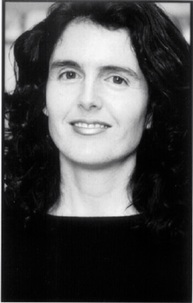 ANNE GARCIA-ROMERO Anne Garcia-Romero's plays include PROVENANCE (Eugene O'Neill National Playwrights Conference); PALOMA; EARTHQUAKE CHICA; MARY PEABODY IN CUBA; LAND OF BENJAMIN FRANKLIN; HORSEY GIRL; DON QUIXOTE DE LA MINNY; MARTA'S MAGNIFICENT MUNDO; DESERT LONGING; JUANITA'S STATUE; and SANTA CONCEPCION. Her plays have been developed and produced at the New York Shakespeare Festival/Public Theater, Summer Play Festival (Off-Broadway), Mark Taper Forum, Hartford Stage, South Coast Rep, O'Neill National Playwrights Conference, INTAR, HERE, New Georges, Borderlands Theater, Nevada Rep, Jungle Theater, East L.A. Repertory, National Hispanic Cultural Center, Open Fist Theater Company, Wordbridge Playwrights Laboratory, and LoNyLa Writers Lab. She's received commissions from the NYSF/Public Theater, The Taper and South Coast Rep. She's been a Jerome Fellow at the Playwrights Center of Minneapolis as well as a MacDowell Colony fellow. Ms. Garc’a-Romero has written for Peninsula Films, Elysian Films and Disney Creative Entertainment. She is the U.S. translator for the internationally acclaimed THE GRONOLM METHOD by Spanish playwright, Jordi Galceran. Her plays are published by Broadway Play Publishing, Playscripts and NoPassport Press. She's taught at numerous colleges, and is currently an Assistant Professor at Notre Dame. She holds an MFA in Playwriting from the Yale School of Drama, is an alumna of New Dramatists, and is a Resident Playwright at Chicago Dramatists. 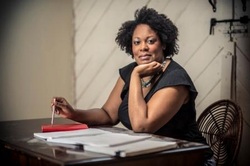 JACQUELINE E. LAWTON Jacqueline E. Lawton received her MFA in Playwriting from the University of Texas at Austin, where she was a James A. Michener Fellow. She participated in the Kennedy Center's Playwright's Intensive (2002) and World Interplay (2003). Her plays include ANNA K; BLOOD-BOUND AND TONGUE-TIED; DEEP BELLY BEAUTIFUL; THE DEVIL'S SWEET WATER; THE HAMPTON YEARS; IRA ALDRIDGE: THE AFRICAN ROSCIUS; LIONS OF INDUSTRY, MOTHERS OF INVENTION; LOVE BROTHERS SERENADE; MAD BREED; and OUR MAN BEVERLY SNOW. She has received commissions from Active Cultures Theater, Discovery Theater, National Portrait Gallery, National Museum of American History, Round House Theatre and Theater J. CINDER BLOCKS was published in EXPERIMENTS IN A JAZZ AESTHETIC: ART, ACTIVISM, ACADEMIA AND THE AUSTIN PROJECT (University of Texas Press). A 2012 TCG Young Leaders of Color, she has been nominated for the Wendy Wasserstein Prize and a PONY Fellowship from the Lark New Play Development Center. Lawton resides in D.C. and is a member of Arena Stage's Playwrights' Arena. 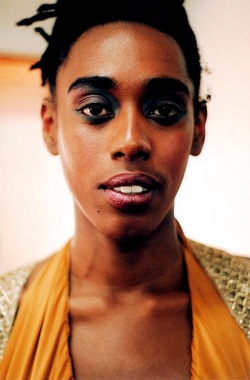 LENELLE MOISE Lenelle Moïse is a current Huntington Theatre Company Playwriting Fellow. She won the 2012 Southern Rep Ruby Prize for her comedy MERIT. She also wrote, composed, and co-starred in the critically acclaimed drama EXPATRIATE, which launched Off Broadway at the Culture Project in 2008. Her other plays include METAMORPHOSIS (Serious Play Theatre Ensemble); LITTLE GRIOT (The Drama Studio); PURPLE (Kitchen Theatre Company); CORNERED IN THE DARK (Insight Out Theatre Collective); and THE MANY FACES OF NIA. Her solo performances WOMB-WORDS, THIRSTING, and ACHE WHAT MAKE have been presented at colleges and theatres across the USA. Ms. Moise was a 2010 Hedgebrook Women Playwrights Festival Fellow, the 2010 recipient of the Astraea Lesbian Writers Fund Award in Poetry, the 2011 Artist in Residence in Performance Studies at Northwestern University, the 2012 Visiting Performing Artist in African & African Diaspora Studies at UT Austin, and the fifth Poet Laureate of Northampton, MA. www.lenellemoise.com 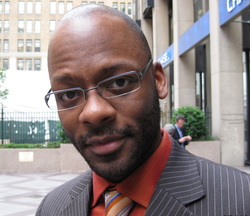 OTIS CORTEZ RAMSEY-ZOE Otis Cortez Ramsey Zoe is a Lecturer of Theatre Arts at Howard University,Future Classics Program Coordinator at The Classical Theatre of Harlem, Series Editor for NoPassport Press’s Dreaming the Americas Series, a freelance dramaturg, and a Company Member of banished? productions. He has developed new works with such organizations as The Sundance Institute, Kennedy Center, Arena Stage, Centerstage and Black Women Playwrights’ Group and by such writers as Colman Domingo, Tarell McCraney, Noah Haidle, Kirsten Greenidge and Tim Acito. He has directed readings including Jacqueline E. Lawton’s The Hampton Years and Blood-bound and Tongue-tied, James Webb’s The Contract and David Emerson Toney’s Kingdom. Previously, he was Literary Manager and First Look Coordinator at Centerstage and an Allen Lee Hughes Dramaturgy and Literary Senior Fellow at Arena Stage. Mr. Ramsey-Zöe holds degrees from New York University and the University of Notre Dame. 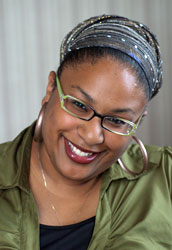 HANA SHARIF Hana Sharif has worked as a Director, Playwright, and Producer for fifteen years. She is currently Program Manager for ArtsEmerson's Ambassador Program, and for nine seasons, she was the Associate Artistic Director/Director of New Play Development, and Artistic Producer, at Hartford Stage. Hana also served as co-founder and Artistic Director of Nasir Productions, a theatre dedicated to bringing theatre to underserved communities. Her regional and international directing credits include: THE WHIPPING MAN; GEM OF THE OCEAN; GEE'S BEND; and NEXT STOP AFRICA. Hana has directed numerous developmental workshops including, most recently, Elyzabeth Gregory Wilder's THE CHAT AND CHEW SUPPER CLUB, and Marcus Gardley's THE HOUSE THAT WILL NOT STAND. Hana's plays include ALL THE WOMAN I USED TO BE; THE RISE AND FALL OF DAY; and THE SPROTT CYCLE TRILOGY. Hana is the recipient of the 2009-2010 Aetna New Voices Fellowship for her work as a playwright and director as well as the Theatre Communications Group (TCG) New Generations fellowship. She received a B.A. from Spelman College and a M.F.A from the University of Houston.
 Funded by the Professional Development Travel Initiative, which is coordinated by Professor Stephen Gerald students from the University of Texas at Austin's Theatre and Dance Department traveled to New York and Washington, D.C. to meet theatre artists, visit theatre companies, performance venues and other arts related organizations so they could learn about future job opportunities, seek career advice and witness for themselves if it was at all possible to make a life as theatre artist. I had a chance to speak with Ja'Michael Darnell, who shared her experiences with me. Please enjoy! 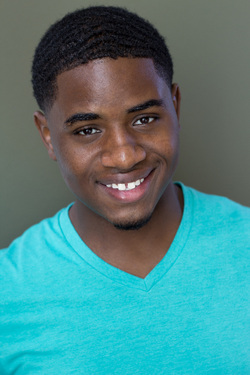 JACQUELINE LAWTON: Why did you decide to get into theatre? Was there someone or a particular show that inspired you? JA’MICHAEL DARNELL: I caught the theatre bug during my sophomore year of high school when I played Wiley in Susan Zeder’s Wiley and the Hairy Man in the UIL One Act Play competition. I received the “Best Actor” award for my performance in our district. It caught me by surprise. Afterwards, I said to myself, “Hey, I’m good at this stuff, and it isn’t hard to do. Maybe I should give it a try.” From that point on, I realized theatre was the place for me. I have an older cousin who did a lot of theatre while he was in college. His experiences inspired me to give it a try as well. JL: Do you have the support of your family and friends to pursue a career in the theatre? JD: Yes, I do have the support of my family and friends, especially from my grandparents. They are retired, so they make sure they’re able to come to Austin and see any show I’m in. At times, they question me about adding another major or ask me, “What are you going to do with that?” Sometimes I get annoyed when I’m asked that, but I know my family just wants the best for me. I know they’ll continue to support me throughout anything I do. JL: In addition to studying theatre, you are also studying African & African Diaspora Studies. How do you feel this has made you a better artist? JD: In addition to studying theatre, I’ve taken many classes from the African & African Diaspora Studies Department. I’ve taken classes such as: Black Power Movement, African American Theatre History, African Americans in Cinema, Intro to Modern Africa, and Afro-Contemporary Dance. All of those classes made a great impact on me. Besides slavery and the historical figures who are always discussed only in February, I had not known much of the profoundness in black history and culture before coming to college. It made me a better artist by giving me a sense of empowerment. I am constantly reminded that I stand on the shoulders of so many people who have lived and died for me to be in the position I’m currently in. JL: How did you come up with this amazing idea to use the Professional Development Travel Grant in this way? How did everything come together? JD: When I first heard about the Professional Development Travel Initiative Grant (PDTI), I immediately thought of focusing on something that involved black folks in the arts because I often wonder what is actually going on with black artists in the real world. So, my friend, Jelisa Robinson and I met with our Faculty Advisor, Stephen Gerald, and we came up with ideas of things we could possibly do. He put us in contact with people he knew currently work in the arts and it went from there. JL: Tell us about your trip to New York. Who did you meet? What did you see? JD: Traveling to New York was amazing, partly because it had been my first time traveling to New York and my first time flying on a plane. While in New York, I met with Laura Greer, the Vice-President of Programming at the historic Apollo Theater. I also met with Andre Lancaster, who’s the Producing Fellow for the Foundry Theatre. In addition, I spoke with Jesse Ehrensaft-Hawley, the Managing Producer, and RJ Maccani, the Community Programs Producer for the Foundry Theatre. They were very inspirational and offered me loads of great advice. In my free time in New York, I got the chance to go to Times Square, see the Chrysler Building and the Empire State Building, explore Grand Central Station and the New York Public Library, and watch the historic Amateur Night show at the Apollo Theater. I can’t wait to go back. There were so many other things I should have done. JL: Tell us about your trip to D.C. Who did you meet? What did you see? JD: My day in D.C. was incredibly insightful. I’m really grateful of the phenomenal Jacqueline Lawton for planning out our day! If you’re hoping to be in a close community, full of like-minded artists, who have a strong interest in the arts, D.C. is the place to be. For our first event of the day in D.C., we had lunch with some of the most prominent theatre artists in D.C. I met the Director of Special Programming at Ford's Theatre, Jennifer Nelson, the Public Program Director of National Portrait Gallery, Jewell Robinson, and D.C. actress Dawn Ursula. I felt so welcomed around them. The conversation was so great that I felt sad when our lunch was over. Afterwards, we went to the Woolly Mammoth Theatre. We met with the Director of Marketing and Public Relations, Deeksha Gaur. During our conversation, she shared so much about her career path and even offered tips for my own. Afterwards, Deeksha gave us a tour of their new theatre. Their space was so cool. I wish we could’ve seen a show there. Later, we had dinner with another group of amazing artists. We met with Dan Pruksarnukul, the Director of Casting at Arena Stage, Amrita Ramanan, a Freelance dramaturg and Former Literary Manager at Arena Stage, and Otis Ramsey-Zoe, a Freelance dramaturg and Lecturer in Theatre at Howard University. All of them were really inspiring. They were all really passionate about their work. JL: Can you share some of what you learned that may help other young artists? JD: From what I learned, I suggest other young artists to follow their passion. You have to love what you do. Also, I suggest not passing up any opportunities. One opportunity can lead to a host of better opportunities. In addition, I suggest artists to not be afraid to say what they want. Put your work out, share it, get feedback, and put it back out! Don’t stop believing in what you can do and the impact your work can make. Finally, I suggest artists to be inquisitive about everything in their work. One question can lead to more creative and meaningful ideas. JL: What are your hopes, dreams and ambitions for the future? JD: My ambitions for my future are to eventually found a community theatre in my hometown, Hearne, TX. I also hope to eventually get into playwrighting and have at least two plays published. I dream to make art that reflects the lives of people I know and inspire them to make meaningful changes in their lives for the better.  Funded by the Professional Development Travel Initiative, which is coordinated by Professor Stephen Gerald students from the University of Texas at Austin's Theatre and Dance Department traveled to New York and Washington, D.C. to meet theatre artists, visit theatre companies, performance venues and other arts related organizations so they could learn about future job opportunities, seek career advice and witness for themselves if it was at all possible to make a life as theatre artist. I had a chance to speak with Jelisa Jay Robinson, who shared her experiences with me. Please enjoy! 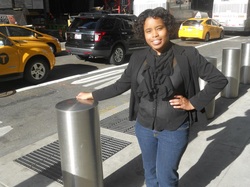 JACQUELINE LAWTON: Why did you decide to get into theatre? Was there someone or a particular show that inspired you? JELISA JAY ROBINSON: I was a little girl who was always playing pretend. In someways, I still do. I memorized the entire Lion King movie and would perform it for my parents. I loved playing dress up, singing, writing and doing anything creative. My parents inspired me to pursue theatre because they encouraged me to perform and supported my dreams. Theatre allows me to express myself and I want everyone to experience that power. That's why I do it! The process may be difficult but once the crowd claps or someone comes up to you and says that they were inspired, it's worth everything. JL: Do you have the support of your family and friends to pursue a career in the theatre? JJR: I am blessed to have parents who support me in whatever I want to do. They encourage me to find a career in the arts where I am financially stable and independent. My friends are the same way and I find its mostly myself who doubts at times. JL: In addition to studying theatre, you are also minoring in Latin American Studies. How do you feel this has made you a better artist? JJR: I study many things but my main interest is Latin American Studies. I am taking classes in Modern Spanish American Literature, Black Women and Dance and Afro-Caribbean Diaspora. These courses fuel my passion for telling the stories of people of color. It's made me a better artist because it contributes to my self-confidence to know my history and the history of other marginalized communities. That's the cool thing about the arts, anything you study can mesh with it. I even keep a blog about my experiences as a Black girl in Latino spaces called blackgirllatinworld.wordpress.com. JL: How did you come up with this amazing idea to use the Professional Development Travel Grant in this way? How did everything come together? JJR: Ja'Michael and I went to Professor Stephen Gerald's office and told him that we were interested in applying for the Professional Development Travel Grant for the College of Fine Arts. We had a couple ideas about what we wanted to see but not a complete plan. All we knew is that we wanted to see Black people and other folks of color in the arts! Gerald gave us many suggestions based on our individual interests and he contacted awesome alumni like Playwright/Dramaturg/Teaching Artist Jacqueline Lawton, Producer Andre Lanecaster and notable professionals like Laura Greer, the Vice-President of Programing at the Apollo Theatre. We were in awe of the professonals that he put us in contact with. Next, we contacted them through email and our professor followed up with phone calls. After everyone gave us their availabilty, we were able to secure housing with a mentor of mine, Daphne in NYC. Then came the hard part, planning everything. Bus routes, plan tickets, Amtrak schedules. We wanted to go to New York and D.C. with a solid plan. In the end, it all worked out. JL: Tell us about your trip to New York. Who did you meet? What did you see? JJR: New York left me speechless! I had the most amazing time trying to navigate through the city before meeting with Andre Lancaster, the Tom Proehl Producing Fellow at the Foundry Theatre and Founding Artistic Producer for Freedom Train Productions and Laura Greer, Vice President of Programming at the famous Apollo Theatre. I grew up watching Showtime at the Apollo so to attend Amateur Night was a dream come true. We got the chance to see the sights like Times Square, the New York Public Library, Grand Central Station and much more. Throughout the entire trip, I just couldn't believe I was on the East Coast. Walking the streets of Harlem, I experienced so much pride because the murals painted on buildings depicted Black stories. I am just grateful for the experience. JL: Tell us about your trip to D.C. Who did you meet? What did you see? JJR: Our D.C. trip was coordinated by the lovely Jacqueline Lawton, a UT alum. She set us up with a host of influencial professionals in the D.C. theatre scene. Our first meeting was with Jewell Robinson the public program director of National Portrait Gallery, Jennifer Nelson, director of special programming for the Ford's Theatre and Dawn Ursula, a D.C. based professional actress. We soaked up every drop of knowledge they offered and showered them with questions. Our second meeting involved an informative tour of the Wolly Mammoth Theatre with Deeksha Gaur, the Director of Marketing and Public Relations. Last was an evening dinner at Station Four with insightful professionals: Amita Ramanan a freelance dramaturg and former literary manager at Arena Stage, Dan Pruksarnukul, director of casting at Arena Stage and Otis Ramsey-Zoe, lecturer in theatre at Howard University. Both Ja'Michael and I took away so much from the unbelievable panel. At night Dan (Director of Casting) gave us a tour of the Arena Stage theatre and saw a play called Mary T and Lizzy K by Playwright Tazewell Thompson who we got the chance to meet. JL: Can you share some of what you learned that may help other young artists? JJR: I am just inspired by all that I learned! The first thing I learned was to always ask questions. Never stop questioning yourself, your motivies, your activities, your peers, your life...your everything. A lot of the times I am so quick to seek the answer when questions are just as important. I now have a million questions and that's okay because it helps me to stay engaged with my artistic process and life. I learned how important it is to be a good writer. As a playwright, you can have a job being a grant writer for a non-profit. That practice in grant writing can help you write your own grant letters for your work. I also learned the importance of knowing about many different topics. As an artist of color, you can really stand out if you know about world topics, various artistic scenes and other varieties of things. As far as jobs go, you can never have too many. Sometimes you need to engage in what I like to call a "side hustle" while working on careers in the arts and that is okay. As long as you work hard at what you do, you will be fine. During interviews, a great question to ask your potential employer is "What reservations do you have about me?" because it shows that you are open to constructive critiques and that you want to improve. You also get the opportunity to talk about experiences that you weren't asked about. It is imperative that you find someone willing to mentor you and to know your own family histories because that influences your work. I wish that I could share everything with you all! JL: What are your hopes, dreams and ambitions for the future? JJR: I hope to become a playwright/writer, graduate from college and teach abroad in Latin America. Then I want to get my Masters/Ph.D degree in Latin American Studies. Since meeting all these awesome theatre professionals, I am now considering working in arts administration for a Latin American focused theatre or arts company. Beyond that I want to start a Theatre/arts program for young black women that helps them to gain skills in the arts, career, college and self-esteem areas. I know that the arts can be used wonderful tool to build confidence and I want to help other young morenas like myself. I want to travel the world, have a great life, buy my parents a home and help my younger brothers through college. It may be a bumpy ride but after this trip I know that it's possible to be a successful black artist!  Back in November, my former theatre professor, Stephen T. Gerald, connected with me about meeting Ja'Michael Darnell and Jelisa Robinson, theatre majors at the University of Texas at Austin, during their spring break. They received a Professional Development Travel Grant to travel to New York and Washington, D.C. Their mission was to meet theatre artists, visit theatre companies, performance venues and other arts related organizations so they could learn about future job opportunities, seek career advice and witness for themselves if it was at all possible to make a life as theatre artist. Stephen had also reached to fellow Longhorn, co-founder of the Drive-by Players, and 2012 TCG Young Leader of Color Andre Lancaster, who is the Producing Fellow at the Foundry Theatre in New York. Meet the Students 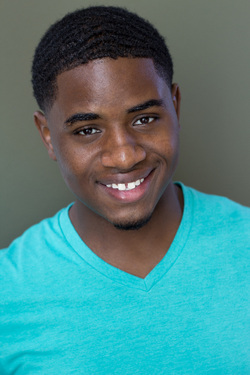 JA'MICHAEL DARNELL Ja'Michael Darnell is majoring in theatre and African American Studies. He is from the small town of Hearne, Texas—not to far from Bryan/College Station, TX. Hearne has a population of under five thousand! Ja'Michael, a senior, will see New York for the first time. It will be the first time he has flown anywhere. Ja'Michael was in the cast of the new children's play, And Then Came Tango, which received national notoriety recently because of its subject matter. You may want to read about this production. See: 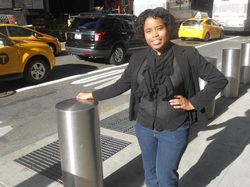 JELISA ROBINSON Jelisa Robinson is majoring in theatre and Latin American studies. Originally from Houston, she is completing her senior year at The University of Texas, and like her peers, she is searching for a path towards her future. Jelisa speaks Spanish and has an affinity for Afro-Latin cultures. Last summer, she spent six weeks in Rio de Janeiro through the anthropology department and had an internship with an arts collective in Rio. Among other things, she's interested in playwrighting. Immediately, I said yes and knew that I wanted to take them the theatre that had the greatest impact on me when I first arrived in D.C. seven years ago: Arena Stage (Fellows and Intern Program Coordinator and Teaching Artist), Ford's Theatre (Box Office Assistant, Dramaturg, and Teaching Artist) and Woolly Mammoth Theatre Company (Dramaturgy/Literary Management Intership). Additionally, I had wanted to take them to the Folger Shakespeare Library (Education Program Associate), but there wasn't any time. I also knew that they would benefit from hearing from more than just me. So, I reached out to some of my favorite people in D.C. What was so lovely, is that save for two amazing folks who were busy opening a play and teaching, I received a resounding yes across the board! Here was our D.C. agenda:
Lunchtime chat with Jennifer Nelson, Jewell Robinson, and Dawn Ursula.Tea and coffee with Deeksha Gaur and Klyph Stanford at Woolly Mammoth Theatre CompanyDinner and a show at Arena Stage with Daniel Pruksarnukul, Amita Ramanan, and Otis Cortez Ramsey-Zoe This day was extraordinary, invigorating and inspiring for the students and for me. You see, when I received my MFA in Playwriting from UT in 2003, I had longed to tap into a U.T. Theatre Network, but it wasn't there for me. Now, these students will never have to say that. It's really beautiful to know that! Later today, I'm going to share interviews from Ja'Michael Darnell and Jelisa Robinson about their experiences. Stay tuned!
|
My BlogI'm a playwright, dramaturg, and teaching artist. It is here where you'll find my queries and musings on life, theater and the world. My posts advocate for diversity, inclusion, and equity in the American Theatre and updates on my own work. Please enjoy!
Categories
All
Archives
June 2020
Reading List
|

